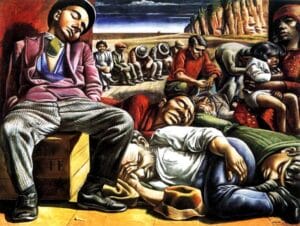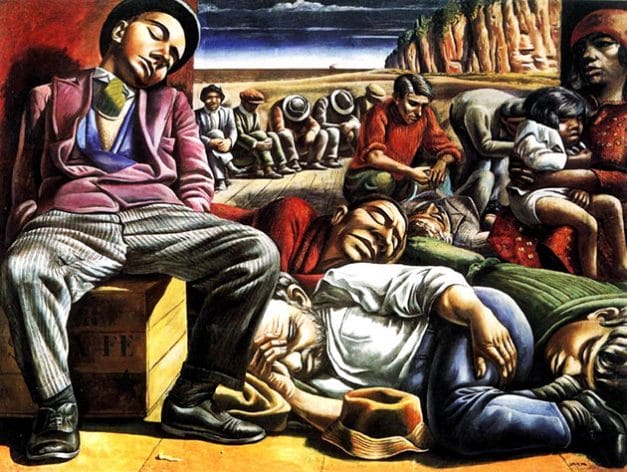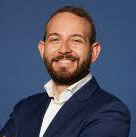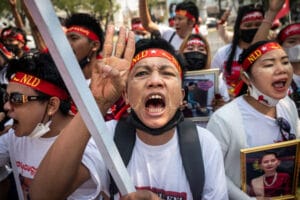
Asia-Pacific, Civil Society, Crime & Justice, Democracy, Featured, Gender Violence, Headlines, Human Rights, Migration & Refugees, TerraViva United Nations
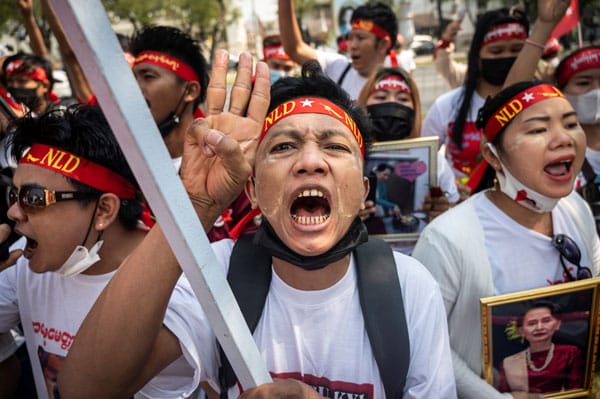
Credit: Sirachai Arunrugstichai/Getty Images
– The military must have expected an easier ride. Three years ago, it ousted Myanmar’s democratically elected government. But the coup has been met with fierce resistance, unleashing a bloody conflict with no end in sight.
Civil society has scrambled to respond to humanitarian needs, defend human rights and seek a path to peace. Last year, civil society organisations in Myanmar and the region developed and endorsed a five-point agenda that calls for an international response to end military violence, including through sanctions, an arms embargo and a referral of Myanmar to the International Criminal Court – a call the UN Security Council hasn’t so far heeded.
Civil society is also demanding that the key regional body, the Association of Southeast Asian Nations (ASEAN), takes the conflict more seriously and engages beyond the junta, particularly with democratic forces and civil society.
So far civil society’s calls haven’t been heard. But intensifying violence proves that the approaches tried to far have failed. Staying on the same path is a recipe for further carnage.
Violence and repression
Three years on from the coup, the military doesn’t control significant sections of the ethnically diverse country. People’s defence forces are fighting an armed campaign in support of the ousted National Unity Government, often in alliance with long-established ethnic militia groups.
In October 2023, three armed groups in Myanmar’s north joined the conflict against the junta, forming the Brotherhood Alliance. The resulting offensive in Shan state saw the rebels capture the border town of Laukkai and cut off key trading routes with China. The UN stated that this was the biggest escalation in fighting since the coup. A ceasefire in the region was supposedly agreed in January following China-brokered talks, but fighting resumed.
It seems clear the junta won’t win this conflict any time soon. Morale among armed forces is collapsing and soldiers defecting, deserting or surrendering in growing numbers. Even pro-junta voices on social media have begun to criticise military leaders.
Pushed into a corner, the military is lashing out, committing mass killings, burning villages and unleashing indiscriminate airstrikes to compensate for its struggles on the ground. The deadliest strike so far came in April 2023, when 168 people, including 40 children, were reported killed in the village of Pa Zi Gyi.
This was no one-off. The UN Special Rapporteur on the situation of human rights in Myanmar has reported that the junta continues to bomb hospitals, schools, villages and camps for displaced people. Attacks on civilians include mass killings, torture, sexual violence and forced labour, and the junta also obstructs essential humanitarian aid supplies.
In September 2023, the UN High Commissioner for Human Rights, Volker Türk, condemned this violence as ‘inhumanity in its vilest form’. Research suggests that most of the military’s senior commanders are responsible for war crimes.
The humanitarian impacts are deep. By the end of 2023, over 2.6 million people had been displaced, 628,000 of them since the Brotherhood Alliance launched its campaign. The UN assesses that 18.6 million need humanitarian help and 5.3 million need it urgently. But aid workers are being targeted: at least 142 were arrested or detained last year.
The restriction of humanitarian work is part of wider repression. Assistance Association for Political Prisoners, a human rights organisation, reports that since the coup 4,468 people have been killed by the junta and pro-military groups. Almost 20,000 people are in detention, among them many activists and protesters charged with offences such as treason and sedition. Torture in prison is widespread, and 34 political prisoners died in detention in 2023.
The junta is doing everything it can to try to control the narrative. It’s believed that 64 journalists are currently detained. Internet shutdowns, website blocking and arrests for social media comments are routine occurrences. Last November, the junta took control of the Broadcasting Council, which oversees TV and radio outlets.
In August 2023, the junta extended the state of emergency, in effect since the coup, for a further six months. The elections that it promised on seizing power are nowhere in sight, and even if they eventually come, they won’t serve any purpose other than trying to legitimise military power.
International action needed
The junta faces strong domestic opposition and has no real international legitimacy but crucially, pressure from the regional body is weak.
ASEAN claims to be following a long-discredited plan, the Five-Point Consensus, which dates back to April 2021. The violence unleashed by the junta against civilians shows it can’t be trusted to act in good faith, but ASEAN still claims to believe it’s possible to involve it in an ‘inclusive dialogue’. At its annual summit in May 2023, ASEAN members reiterated their support for the failed plan, despite civil society’s calls.
ASEAN members are mostly repressive states, and some, including Cambodia and Thailand, have shown signs of seeking to normalise relations with the junta. ASEAN continues to allow junta representatives to attend some of its meetings. This year’s chair, Laos, is an authoritarian state that will have no interest in restoring democracy in Myanmar.
Elsewhere, however, the junta may be running out of friends. China was untroubled by military rule, but it doesn’t want unrest on its border. A potential breakthrough came from the US government in October 2023, when it imposed sanctions on the previously untouchable Myanma Oil and Gas Enterprise (MOGE), the state-owned corporation that’s the regime’s main source of foreign income. The European Union also stepped up its sanctions in December 2023, including against two companies providing arms and generating income for the junta.
It remains essential to keep the junta diplomatically isolated and to cut economic relations with the many companies it depends on, including MOGE. It’s vital to stop supplying arms to the junta and, above all, to stop selling it the jet fuel it needs to carry out airstrikes.
A UN Human Rights Council resolution adopted in April 2023 condemned the junta’s violence but failed to call for responses such as bans on the sale of weapons or aviation fuel. Events since then have made it sadly clear that decisive action can no longer wait.
Andrew Firmin is CIVICUS Editor-in-Chief, co-director and writer for CIVICUS Lens and co-author of the State of Civil Society Report.

